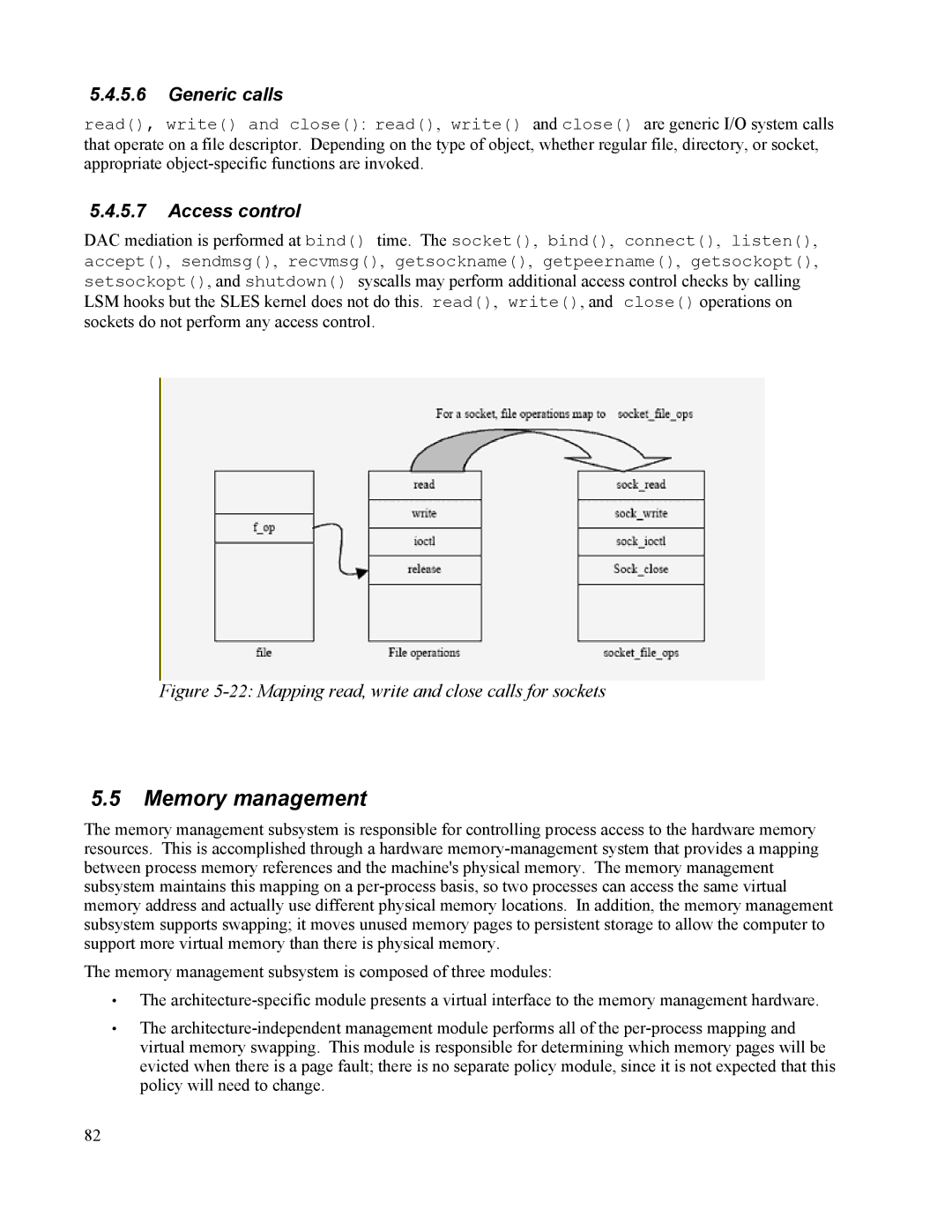
5.4.5.6Generic calls
read(), write() and close(): read(), write() and close() are generic I/O system calls
that operate on a file descriptor. Depending on the type of object, whether regular file, directory, or socket, appropriate
5.4.5.7Access control
DAC mediation is performed at bind() time. The socket(), bind(), connect(), listen(), accept(), sendmsg(), recvmsg(), getsockname(), getpeername(), getsockopt(), setsockopt(), and shutdown() syscalls may perform additional access control checks by calling
LSM hooks but the SLES kernel does not do this. read(), write(), and close() operations on sockets do not perform any access control.
Figure 5-22: Mapping read, write and close calls for sockets
5.5Memory management
The memory management subsystem is responsible for controlling process access to the hardware memory resources. This is accomplished through a hardware
The memory management subsystem is composed of three modules:
•The
•The
82
